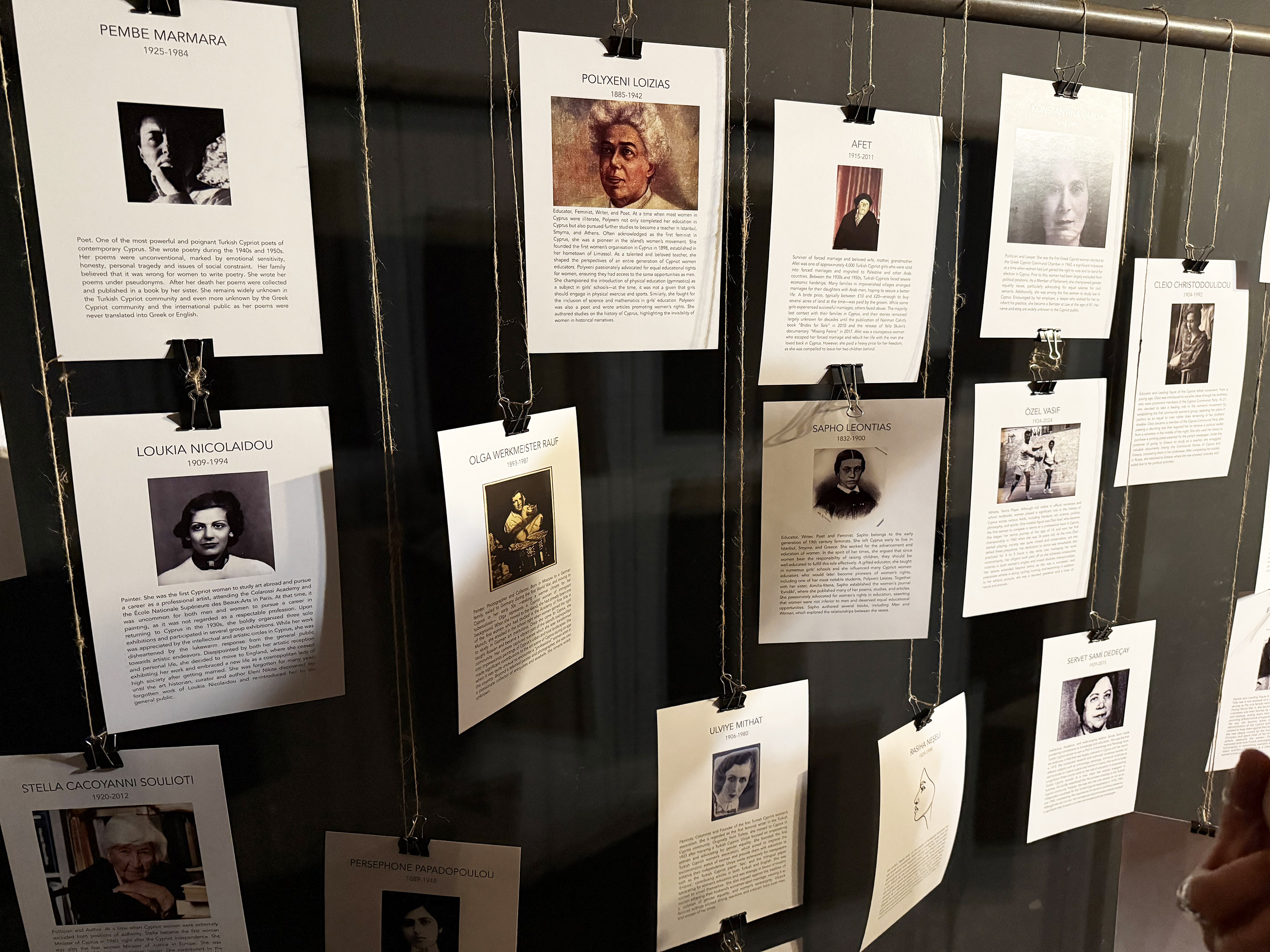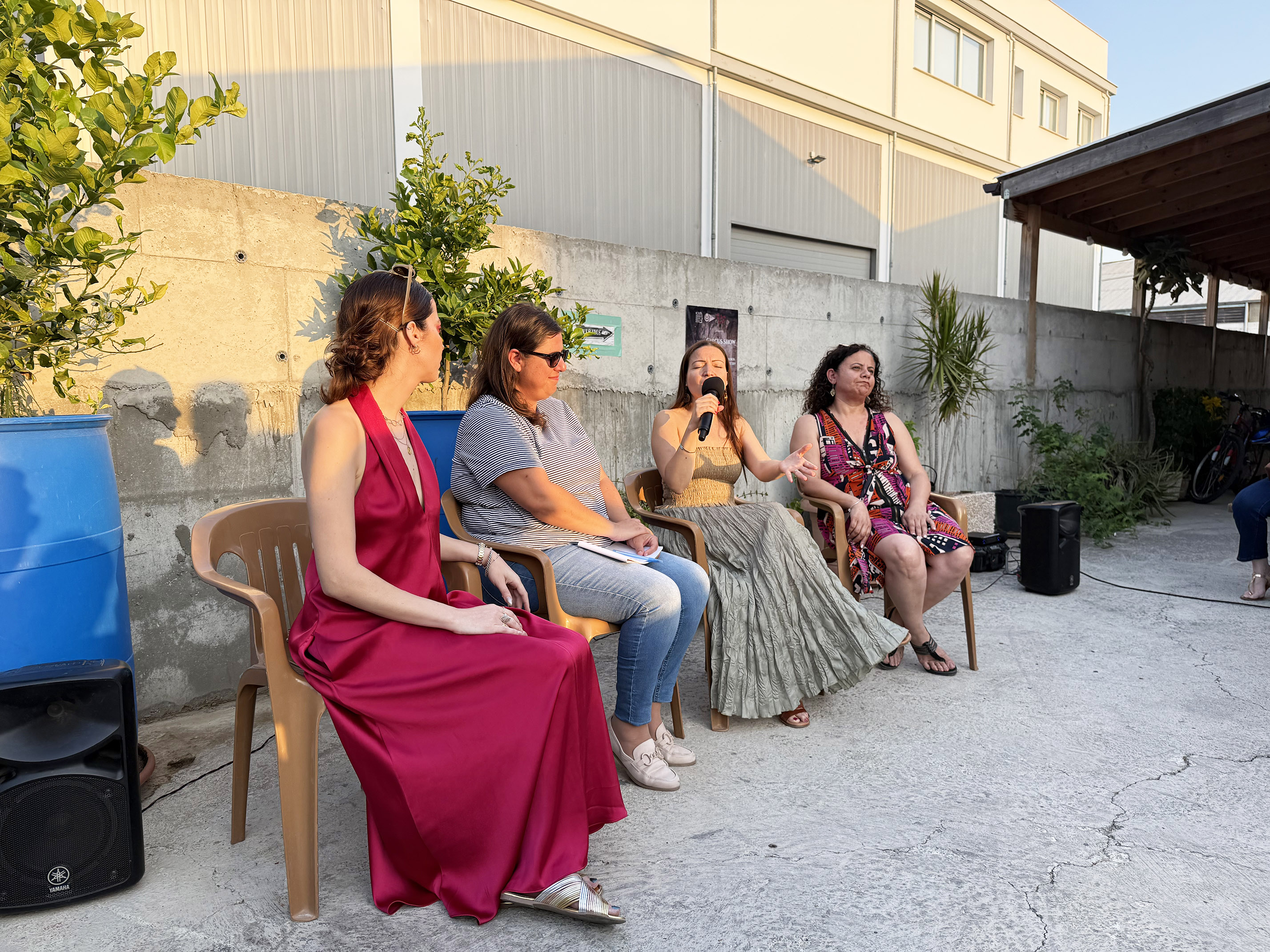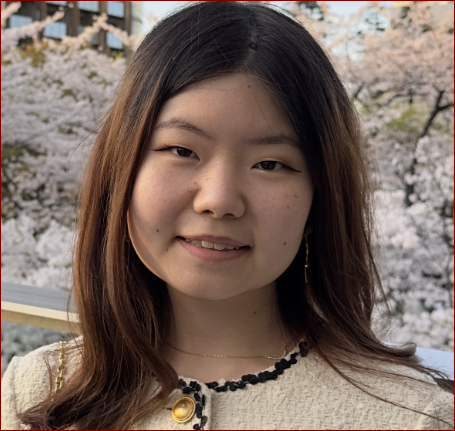‘Our children learn about Alexander the Great at school, but they wouldn’t learn anything about a woman in Cyprus doing something’
Blue light drenched the room. Suspended tree branches hung from the ceiling on either end of the stage, while in the centre, a DJ station rested in a nest of flowers and twigs. The air was thick with ambient sounds — crickets and nocturnal hums mimicking the Cyprus night outside.
As DJ Nama Dama started singing, light flooded the room, revealing a jungle-like environment: painted pinecones were tossed into the air, leaves were clutched in performers’ hands, and dancers weaved through a stage evoking both a forest and a fever dream. One performer held an olive branch; another wore a string of leaves draped like a scarf; a third wore a long ponytail connected to a hoop.
“My goal was to connect with the audience and the performers through my music,” Nama Dama told the Cyprus Mail. “After all, our show was about finding ways to connect with each other.”
This opening act, part of a dance performance co-organised by the NGO Centre for Gender Equality & History (KIIF) and the Spanish circus collective La Fem Fatal, started by grounding itself in nature.
But as the performance unfolded, the natural slowly gave way to the surreal.
Dancers dangled from the ceiling by their hair. The childhood game Red Light, Green Light was rapidly and disorientingly played in multiple languages. The lights dimmed to a visceral red. The pace quickened: suspended bodies swung wildly toward the audience, limbs outstretched.

This circus performance was the centrepiece of Biographies of Cypriot Women: Voicing the Silences of History through Scenic Arts, a cultural event dedicated to celebrating the untold stories of Cypriot women. The evening opened with a panel discussion featuring the authors behind the NGO’s new publication that spotlights the lives of Cypriot women. An accompanying exhibition featured archival images and short biographical texts.
“There is a phenomenon of women in history not being so visible,” a director and founding member of KIIF Thekla Kyritsi told the Cyprus Mail. “This idea began from my own research on women’s history – I was trying to find some archives and stories, and I saw that no archive was really there.”
Scenic arts, according to Kyritsi, was selected as a medium to “integrate women and gender into a harmonious way of performing” and to “symbolically bring together the aspects of gender.”
The idea to intertwine circus arts with women’s history came from a friend’s suggestion. “I realised that circus is actually an art; it has dramatic genius, it has movement, and it can be very serious and artistic,” she said. The combination of a performance and a panel, Kyritsi said, was “a way to popularise women’s history” and make it more accessible to the broader public.
The panel, held at sunset, focused on the development of the e-book, which drew on extensive archival research, including maps, historical records and academic theses. Speakers highlighted notable Cypriot women including Stella Soulioti, the first female justice minister in Europe, and Pembe Marmara, among the earliest female Turkish Cypriot poets.
A circus performance featuring a cast of Spanish and Cypriot dancers and directors followed. “The show is based on the voices of women that have been important in Cypriot history and have been silenced,” director of the performance and a dancer for La Fem Fatale Toni Gutierrez said. “Our main aim was to generate images and scenes that portray the importance of the woman.”

“It’s a show that wants to put the woman in the place that she deserves,” Gutierrez continued, gesturing upwards.
“The space that we inhabit is Cyprus – we are in Cyprus in the show, and we put some elements on stage that physically remind us of this land that we work with,” Gutierrez added. The pine cones were chosen for their abundance in the local environment, and the combination of electronic piano, vocals and flute, tree roots and olive branches was intended to evoke “something very traditional – something that comes from the roots of the land.”
“After the performance, we received many comments about the powerful imagery in the show, which we created using natural elements from the Cyprus landscape,” acrobat and juggler Theoharis Constantino told the Cyprus Mail.
Kyritsi added that the panel and the e-book aim to address a gap in historical education in Cyprus: “Our children learn about Alexander the Great at school, but they wouldn’t learn anything about a woman in Cyprus doing something.”
Although the event focused on Cypriot women, many expressed hope that its message of gender equality would have broader, universal relevance.
“We can find creative and fun and peaceful and joyful ways to talk about the cause of gender equality and any kind of social cause,” Kyritsi said. “I think it should be a celebration of humanity – not so much about which one is the enemy, and which one should be blamed.”
“The whole show is about not just the women, but the stories of humanity,” performers Marina Poyiadji added. “It doesn’t matter if it’s Cyprus or another country. The message is about our human nature and our plea for togetherness.”






Click here to change your cookie preferences